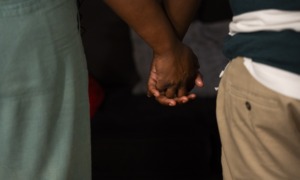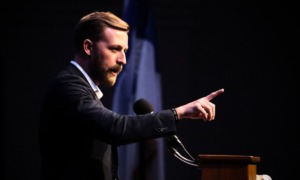BY KAREN PITTMAN
The new millennium is upon us. Reflection is required. What have we accomplished over the past few decades? We have pushed the public goals for all youth from problem-management to problem-prevention to promoting development (meaning problem-free and fully prepared). We are moving more forcefully the idea that fully prepared is not enough – that young people must be fully participating. We’ve strengthened our links with the goals and strategies of our “sister” fields – early childhood development, community development, economic development and family development. Most would agree that the changes in the last 40 years of youth policy and practice have been positive and significant.
But these changes have yielded some unexpected consequences.
There may be more attention to youth, but the nation’s policy focus has shifted away from older, marginalized, non-college bound youth to elementary and middle-school youth who are “at risk” of but not struggling with the problems that caught the public’s attention several decades ago. This younger age/lower risk group is where “smart investments” are now being made: investments seen as paying off in both problem-reduction and work force preparation. These investments are clearly needed, but once again we are watching one age group pitted against another in the competition for public attention and public dollars.
There is a real danger that in the next 40 years the “early investment” push, combined with the lingering “fix, then develop” mentality, will make it less likely that young people most in need of services and supports and opportunities (older, “off-track” youth) will get them, and get them with the generosity needed to make a difference. Enthusiasm for the developing of “fully prepared youth” may continue to grow, but there is a risk that it will be realized mostly through efforts to reach young people earlier in order to reduce supports later. Those who do not thrive on relatively light but constant doses of early support – those who are “on track” at eight, but begin to slip at 12 and are “off track” at 15 – may not get the attention and supports they need to regain their position.
Recent research confirms what practitioners know: older youth have fewer supports and opportunities than do younger adolescents. The consequences of this disconnection are dire. A set of studies spearheaded by Douglas Besharov at the American Enterprise Institute concludes that young people who are disconnected (from work, family and education) during three or more transitional years between ages 17 – 23 are significantly more likely to end up poor, on welfare, in prison or unemployed as adults.
Those in the field know the stories behind these statistics. But those not in the field need more powerful reminders. These reminders must come with enough power and persistence that they cannot be filed away as stories of individual young people who “beat the odds,” but must be grappled with as examples of supports that allowed young people and their communities to “change the odds” for all youth.
Once you start looking, these reminders are not hard to find. Consider Glenda, a youth activist in a very impoverished community in Caracas, Venezuela, who started working in a community development organization called Utopia when she was 10 years old: “[We] woke up one day and realized that solutions won’t spontaneously come from God, the government, or anyone…. So what did we do? We grabbed what we had: our people – the most important resource the world has, and I mean everyone, including young people – and we learned to work with that.” The work they have done is amazing.
We will do a disservice to all young people and society if we do not find ways to solidify the public idea of youth as change agents. We will do a further disservice if we fail to ensure that this idea starts rather than concludes with the engagement of the young people whose lives and communities are most in need of changing.
Karen Pittman is chairman of Youth Today’s board of directors and senior vice president of the International Youth Foundation.



























